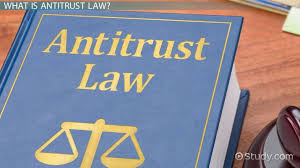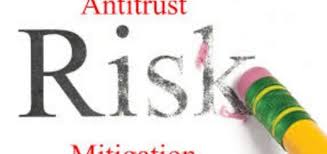Antitrust Compliance Programs: Ethical Culture and Monitoring (Part II of III)

Like all compliance programs, a company lives or dies based on its ethical culture. A company with a poor culture that operates in a concentrated competitive market has significantly higher antitrust risks than companies with a strong ethical culture. This basic and well understood premise has to be considered in designing an antitrust compliance program. If senior management does not walk the walk, antitrust risks will increase exponentially, along with other relevant risks.
The company’s ethical culture message has to include fair and robust competition. There is a fine line here that has to be walked. Of course, every company is committed to competing – but the point is that competition has to done fairly and without illegal tactics. In other words, the company wants to win but do so in the right way. It can sometimes be difficult to communicate this message without listeners misconstruing the message.

This is where senior management reinforcement of fair and aggressive competition is critical. Sales activities are the lifeblood of a company and senior managers have to set the right tone, and to emphasize promoting the company’s culture of trust and integrity. That attitude has to permeate every aspect of the company’s operations so that the positive culture is pervasive throughout the company. Antitrust compliance and fair competition is an important part of this messaging and conduct. If a company’s culture is deficient or weak in a particular division, product line or geographic area, antitrust and other compliance risks are under threat.
A company’s monitoring program has to include a company’s ethical culture. I have written numerous postings and spoken about this function as critical to preserving a positive ethical culture. Targeted and rapid surveys along with focus groups, proactive interviews and related measurement of culture performance (e.g. hotline calls, employee concerns) should be watched to ensure that culture weaknesses are detected and then remediated. A focused approach on corporate culture should be executed based on specific geographic intelligence – so that a problem in a particular office or operation is detected and addressed.
From an antirust -specific perspective, monitoring of activities surrounding pricing and supply of products is critical. DOJ’s Antitrust Guidance references the use of statistical models for monitoring pricing data to identify potential cartel activity. Most companies have rudimentary monitoring procedures usually centering around trade association and industry meetings. Such a limited scope is not effective.
A more efficient approach to monitor cartel risks is to focus on bid procedures, if relevant, pricing changes, and operational decisions to enter or exit geographic markets. To the extent these activities are controlled by small number of people, the risks of an agreement between companies increases.

Typically, companies will identify relevant personnel, including executives, managers and employees, including sales staff to monitor activities and identify potential indicators of improper conduct. For these individuals, companies can regularly conduct email searches, file reviews, and interviews. For example, emails with a competitor may be relevant to review, along with keyword searches. Follow up interviews of at-risk employees would be important to conduct as part of a regular monitoring procedure. As always, such monitoring activities can be conducted on a sampling basic, in relevant divisions and/or product lines, without requiring the burden of an enterprise-wide audit.
To mitigate risks, companies should also build procedures around certain high-risk activities, including pricing, bid preparation, and other key market decisions. The company should create specific controls and require multiple individuals or specifically-designated committees to review such actions based on proper documentation. Just like all risky activities, segregation of duties is important to ensure that no one person can carry out and implement an illegal price-fixing conspiracy with a competitor. Review of such decisions and documentation of the support and reasons for the decision are important to maintain as a control against illegal agreements with competitors.














